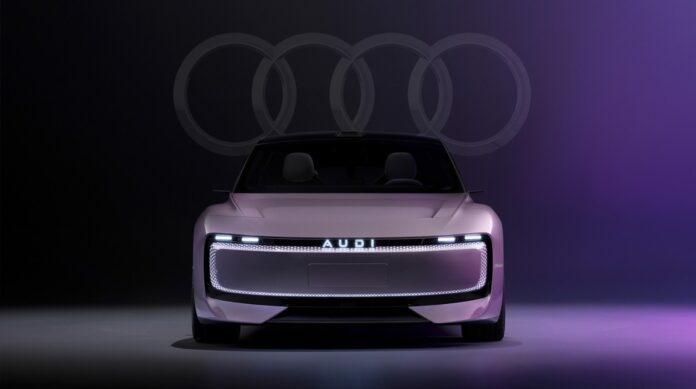Audi Redefines Its Identity: Iconic Four Rings Removed Amid Industry Shift
In the evolving world of brand logos, these symbols are more than mere designs; they represent heritage, luxury, and identity. The automotive industry, known for its timeless emblems, is undergoing surprising transformations. Following Jaguar’s recent redesign of its iconic leaping cat logo, Audi has taken a bolder step—removing its legendary four rings entirely. This unexpected decision has left car enthusiasts, branding experts, and design aficionados stunned.
The Significance of Audi’s Four Rings
To understand the weight of this decision, it’s essential to appreciate what Audi’s four rings symbolize. Introduced in 1932, they represent the merger of four automotive manufacturers—Audi, DKW, Horch, and Wanderer—forming the Auto Union. Over the decades, the rings have become synonymous with luxury, innovation, and engineering excellence. Removing them is a move no one anticipated.
Why Audi Made This Bold Move
Audi’s decision to remove its rings stems from its ambition to adapt to a rapidly changing industry and consumer landscape. Here’s why this shift might make sense:
- Embracing the Digital Era
Audi is focusing on digitalization and sustainability, aiming to resonate with tech-savvy, younger audiences. Its anticipated new minimalist logo aligns with modern, clean aesthetics that are popular in the digital age. - Commitment to Sustainability
In a world where sustainability matters, simplicity in design reflects eco-conscious branding. Audi’s shift could signify a move toward reducing visual clutter and embracing a cleaner image. - Standing Out in a Crowded Market
With fierce competition in the luxury car segment, Audi’s rebranding could be an attempt to distinguish itself with a forward-looking identity that breaks away from traditional designs.
Mixed Reactions from Fans and Experts
The announcement has sparked global reactions. Car enthusiasts expressed disbelief, with many questioning whether brands are losing their identity in the race to modernize.
- “Audi’s rings are timeless. Why mess with perfection?” tweeted one fan.
Personally, I like the four interlinked circles and think of the logo as classic and memorable. But maybe it means nothing to younger audiences?
While some view the move as a progressive vision, others worry it may alienate loyal customers emotionally tied to the original design.
Industry-Wide Logo Transformations
Audi isn’t alone in reimagining its logo. Several automakers have recently embraced minimalism:
- BMW adopted a flat, 2D logo in 2020 to suit digital platforms.
- Volkswagen simplified its emblem to match minimalist trends.
- Kia introduced a futuristic, angular logo, departing from its earlier rounded design.
However, Audi’s decision to completely remove its rings is a far more radical departure.
Why Brands Are Redesigning Logos Across Industries
This trend isn’t limited to automakers. Across sectors, brands are simplifying logos for several reasons:
- Digital Optimization
Minimalist designs work better on digital platforms and small screens, essential in the digital-first era. - Minimalism as a Value
Modern consumers favor clarity and simplicity, making streamlined logos resonate more deeply. - Global Appeal
Simple logos transcend cultural barriers, making them effective in international markets. - Cost Efficiency
Streamlined designs reduce production costs for branding materials and advertising.
What’s Next for Audi?
Details of Audi’s new logo remain under wraps, but it’s likely to reflect the brand’s focus on sustainability, innovation, and connectivity. Audi’s heavy investment in electric vehicles (EVs) and autonomous technologies indicates its ambition to align its identity with a futuristic vision.
The Road Ahead
Audi’s decision to part with its iconic rings marks a daring departure from tradition. Whether it becomes a marketing triumph or misstep remains to be seen. For fans, the emotional connection to the rings runs deep, and the change won’t be easy to accept.
Yet, Audi understands that staying relevant in a rapidly changing world often means embracing bold choices. As the automotive industry undergoes a branding revolution, Audi’s move signifies that the road ahead will be as unpredictable as it is transformative.




